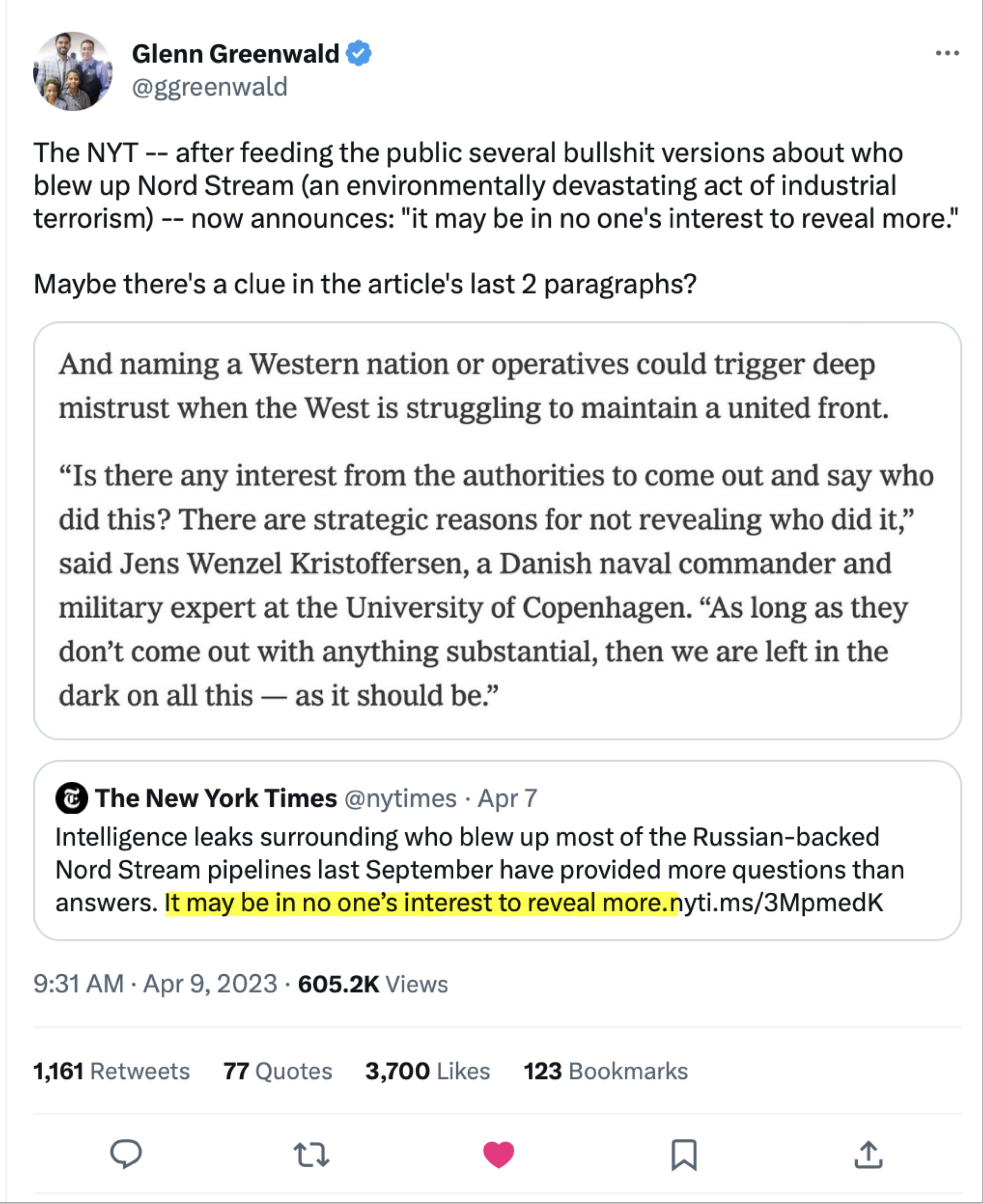The Day Sam Harris Stopped Being a Skeptic
For many years I had listened to Making Sense, the podcast of Sam Harris. I admired Sam's ability to analyze many complex issues, including religion and cognitive science. I don't listen to him nearly as much any more. He has fallen off the tracks regarding COVID and censorship. I am also concerned that he has a bad case of Trump Derangement Syndrome - I describe TDS as a disgust of Trump that is so intense that one is willing to start with the premise that Trump cannot ever again be president, then to reverse-engineer government and media institutions that get in the way, disabling them if necessary, doing whatever is necessary to guarantee that Trump never again holds power.
Recently, I found myself wondering when it was that I first noticed that Harris fell off the rails on these topics. I think it was on his January 2, 2019 with Renée DiResta, who is described in the podcast notes as "Director of Research at New Knowledge and Head of Policy at the nonprofit organization Data for Democracy." I remember listening to this podcast several years ago, thinking that Sam was simply eating out of DiResta's hand, taking everything she said without exercising any meaningful skepticism or pushback. While I listened to that podcast, it seemed like a truly bizarre moment compared to other episodes of an otherwise excellent well-informed, highly-engaging podcast.
At minute 18 of the podcast, Sam seemed hypnotized into head-nodding as DiResta described "Russian Interference in the U.S. Presidential Election of 2016." When Harris asked whether we know this to be true, DiResta responded there is "no basis for doubt," that it is "crystal clear," "it happened" and an "incontrovertible truth." A claim like this should result in dozens of questions, including who, what, when, where, how and why.
But that was the day Sam-the-Skeptic died. At Minute 20, Sam assured DiResta that this Russian interference only went in one direction. It "was not a pro-Clinton campaign." DiResta explained to Harris that the Russian "Internet Research Agency" was growing "tribes" on social media, based on divisive issues having nothing to do with Trump, then somehow switching those tribes and disillusionment into pro-Trump propaganda. DiResta explained that this social media propaganda was organized around ideas of "pride" of Americans "to exploit feelings of alienation" on topics as diverse as Immigration, southern culture, LGBT, Bernie Sanders, religious rights, BLM and pro-police. And then the Russians started "weaving in their support for candidate Trump." Somehow those evil-doers converted people who allegedly found these to be topics of interest to channel their frustrations into votes for Trump. And somehow these social media posts (a mere "81 Facebook pages") swayed the outcome of a national American election where multi-millions of dollars were being spent by the candidates themselves. DiResta spun this spectacularly unconvincing story based on black-box "trust me" causation. She was allowed to sell this wild story without backing it up with any meaningful corroborating statistics or any psychological analysis of how this tactic could possibly work, yet Harris sat on his hands for the entire podcast drinking the Kool-Aid.
Now we know a lot more about Renée DiResta. According to Michael Shellenberger's recent article: "Why Renee DiResta Leads The Censorship Industry: How a former CIA fellow came to lead US government efforts to stamp out disfavored speech on the Internet."
DiResta’s rise to the highest levels of the U.S. intelligence community struck me back in December of last year as improbably meteoric. DiResta had repeatedly described her involvement in fighting disinformation as having started in 2013 when she became a new mom and grew concerned about spreading anti-vaccine information online. “In 2013,” she explained to Kara Swisher, “I had my first kid… You know, you have to do that preschool thing here, you’ve got to get them on a list a year early. I didn’t want to be in a preschool with a bunch of anti-vaxxers, candidly.” Two years later she was helping to fight ISIS online and by 2018 she was testifying before the U.S. Senate Intelligence Committee.
NYT Forced to Acknowledge U.S. Spy Efforts due to Third Party Release of Leaked Documents
In Daniel Ellsberg's day, the NYT was seen as a place friendly to whistle-blowers and those who have documents exposing secret government activities. No longer. Further, the NYT refuses to post a link to the leaked documents, only linking to its own hand-wringing articles. Nowadays, secret documents are leaked elsewhere and the NYT needs to play catch-up, coupling its reluctant acknowledgement with a warning about the damage that could be caused by leaks about secret U.S. activity:
The leak has the potential to do real damage to Ukraine’s war effort by exposing which Russian agencies the United States knows the most about, giving Moscow a potential opportunity to cut off the sources of information. Current and former officials say it is too soon to know the extent of the damage, but if Russia is able to determine how the United States collects its information and cuts off that flow, it may have an effect on the battlefield in Ukraine.
The leak has already complicated relations with allied countries and raised doubts about America’s ability to keep its secrets. After reviewing the documents, a senior Western intelligence official said the release of the material was painful and suggested that it could curb intelligence sharing. For various agencies to provide material to each other, the official said, requires trust and assurances that certain sensitive information will be kept secret.
On the other hand, if you are part of the U.S. security state, the NYT is more than happy to post your propaganda, as it did in the case of the Nord Stream Pipeline. Unbelievably, knowing that it's "explanation" of the pipeline destruction is bullshit, the NYT suggests it's not a good idea to dig further into who destroyed the pipeline:
It's a good day to celebrate the immense good fortune of NYT reporters who get to draw big salaries while not having to do the difficult work of actually practicing journalism.

Proposed new Mission Statement for the New York Times: Pay No Attention to the Man Behind the Curtain.
Joe Biden promised to disable the pipeline prior to its destruction:
Biden's neocon crony, Victoria Nuland, helped to lead the post-destruction cheerleading, as Aaron Maté reminds us, but, again, Pay No Attention to the Man Behind the Curtain.
No wonder the corporate media and their U.S. government partners hate Twitter 2.0...
The Little Sailboat that Destroyed the Nord Stream Pipeline
1. Joe Biden promises he will make Nord Stream pipeline inoperable. Someone then destroys the pipeline. Biden then denies that he had anything to do with this act of war. 2. Next, Seymour Hersh publishes detailed investigative article showing how the U.S. destroyed the pipeline. 3. Germany, co-owner of the pipeline, displays what has got to be the most vivid case of Stockholm Syndrome in human history. 4. U.S. news media ignores the Hersh story. 5. The CIA cooks up an absurd alternative story that not-Joe-Biden destroyed the pipeline. The pipeline was destroyed using "Pro-Ukrainian" group that uses a 49 foot sailboat. 6. The NYT, which has now begrudgingly acknowledged Hersh's blockbuster story, laps up the CIA story. 7. Seymour Hersh destroys the NYT-CIA story with a handful of simple questions.
Excerpt from Hersh's newest story, "THE NORD STREAM GHOST SHIP: The false details in the CIA's cover story":
My initial report received coverage around the world but was ignored by the major newspapers and television networks in the United States. As the story gained traction in Europe and elsewhere abroad, the New York Times on March 7 published a report quoting US officials asserting that American intelligence had accumulated information suggesting that a pro-Ukrainian group sabotaged the pipelines. The story said officials who had “reviewed” the new intelligence depicted it to be “a step toward determining responsibility” for the pipeline sabotage. The Times story got worldwide attention, but nothing more has been heard since from the newspaper about who did what. In an interview for a Times podcast, one of the three authors of the article inadvertently explained why the story was dead on arrival. The writer was asked about the involvement of the alleged pro-Ukrainian group: “What makes you think that’s what happened?” He answered: “I should be very clear that we know really very little. Right?”
White House is Funding More Powerful Censorship Technologies
From Mike Benz at Foundation for Freedom Online:
SUMMARY of "The National Science Foundation’s “Convergence Accelerator Track F” Is Funding Domestic Censorship Superweapons":
The US government is giving millions to university labs and private firms to stop domestic US citizen opinions on social media.
The National Science Foundation is taking a program set up to solve "grand challenges" like quantum technology and using it for the science of censorship.
Government-funded projects are sorting massive databases of American political and social communities into categories like “misinformation tweeters" and "misinformation followers."




